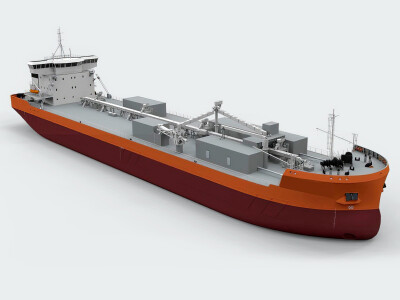It was old news that China had been investing heavily in Africa, even before President Xi Jinping announced last fall that the country would invest another $60 billion in the continent in the next three years.
China has been quietly buying up infrastructure — factories, power plants, even roads — around the world for some time, so Xi’s announcement last week that China will establish its first wholly-owned port in the Americas, Chancay Terminal in Peru, is merely a confirmation of China’s ambitions. What China hasn’t trumpeted is its hegemony throughout the rest of the shipping world.
While laying claims to vast areas of the South China Sea that were previously international waters — by building islands on reefs — China has also established itself as a major player in all aspects of international shipping. Chinese shipyards now dominate the world newbuilding industry, and recently Chinese engines — European engines built under license — have begun to appear in Chinese-built ships. Even the quality of Chinese navigational electronics has begun to improve.
But China's reach extends to other aspects of international shipping than the ships themselves: it has inserted its tentacles into shipping routes and infrastructure throughout the world. A shadowy Chinese businessman and billionaire — almost certainly backed by the Chinese government — named Wang Jing tried to finance a trans-America canal to compete with the Panama Canal. But when the Chinese government realized how quixotic this effort was, it dropped its financing of Wang and cemented a broad agreement with Panama that sealed the fate of any competing canal. Whether anyone except the gullible Nicaraguans — and perhaps Wang himself — suffered as a result is unknown, but the Chinese government certainly didn’t.

At a signing ceremony last week in Davos, Switzerland, Cosco Shipping Ports inked a deal to build Chancay Terminal into an important gateway port in Peru. Cosco Shipping Ports photo
Now the Chinese government-owned port operator, Cosco Shipping Ports Ltd., has paid $225 million for a 60% stake in Chancay Terminal, an important port in the Americas located about 40 miles north of the main port of Callao. Xiao Yaqing, chairman of the Chinese government’s oversight committee on foreign investments, said in a statement that "the port will not only further strengthen the international operational capabilities of Chinese corporations, but will also further enhance the economic development of Peru.” Of course, if the government of Peru wants to know how sincere that last part is, it needs only look to Nicaragua.
The U.S. has long turned a blind eye to the national security component of international shipping. It was this intransigence that crippled our early efforts in World War II, and we seem to have forgotten that lesson or the same lesson from the first Gulf War, during which the U.S. was forced to beg foreign shipowners to carry U.S. war materiel on foreign bottoms. Yet the Chinese have certainly taken note. If China is ever involved in a global conflict it will have infrastructure in place in far-flung places to sustain its effort, secretly or openly, just as Germany used its foreign colonies and sympathizers in World War II (for example, the German effort in the South Atlantic was effectively managed from the German embassy in “neutral” Spain).
Although recognizing Chinese dominance is easy, countering it will be more problematic. Thanks to China’s bulging trade surplus with the rest of the world, it has the money to invest in Third World countries and the muscle to collect the vig when it comes due. According to The Telegraph, “African nations are often happy to accept China's offers that come without demands for safeguards against corruption, waste and environmental damage.” And although some countries are starting to have second thoughts, according to The Telegraph, (Malaysia recently canceled $20 billion in Chinese infrastructure contracts, and Pakistan is considering a similar move) African nations desperate for cash may not be able to afford them.
Before we feel too much sympathy for the desperate nations of Africa, we should consider the case of the Port of Long Beach, Calif. Cosco already owns a sizable minority in a Long Beach container terminal and was negotiating to buy it outright when the U.S. SEC stepped in and forced it to sell its holdings at the port, “because the U.S. government didn’t want a foreign power controlling one of America’s most important shipping terminals,” according to the Long Beach Press Telegram. The question of where the SEC was when Cosco first acquired its interest in the terminal is an open one, but in fact the new deal with the SEC allows Cosco to do through its subsidiary, Orient Overseas International Ltd., whatever it would have done itself, so it’s another game-set-match for the Chinese.
Rudyard Kipling may have said it best: “A fool lies here/Who tried to hustle the East.”





